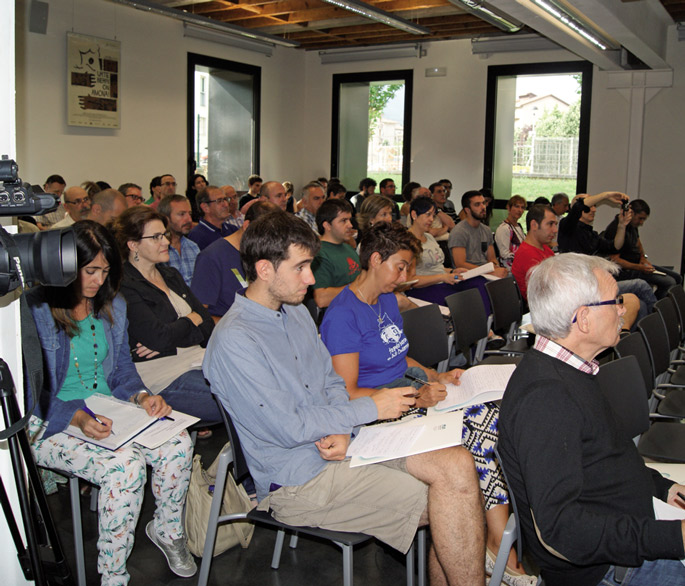
Hirugarren iraultza industrialean gaude. Horixe azaldu zuen Joan Subirats Humet katedradunak uztailaren 15ean, Mondragon Unibertsitateko Lanki ikertegiak antolatutako jardunaldietan. Kooperatibagintzaren egungo galderak pausatu zituen.

“Kooperatibagintzak krisi garaietan irauteko gaitasun handiagoa du gainerako enpresek baino, koste sozial gutxiago eragiten dituelako kapitalismoak baino. Baina kooperatibagintza zer da, erresistentziarako tresna edo alternatiba?” Horra pausatutako lehen galdera. “Alegia, gakoa zer da, hobeto irautea? edo bada beste borondaterik? Birpolitizatu dezakegu kooperatibismoa? Eztabaidatu dezakegu nork irabazten eta galtzen duen erabakiak hartzen ditugunean? Arautu dezakegu berriz kostu eta irabazien banaketa?”. Ekonomiaren zentzua eztabaidatu beharra azpimarratu zuen: “Egia handi bat balitz moduan onartzen dugu esaldi hau: ‘Proiektu hau ekonomikoki ez da bideragarria’. A ez? Ekonomiaz zuk duzun zentzuaren arabera izango da!”.
Orain egiten ez badugu noiz egingo dugu bada?
“Galderak birplanteatzeko garaia da. Hirugarren iraultza industriala bizitzen ari gara: Ekoizteko moduaren aldaketak eragindako gizarte aldaketa handi baten aurrean gaude”. The Economisten Hirugarren iraultza industriala artikulua oinarri hartuta birpasatu zituen XVIII. mendean bapore makinak ekarritako lehen iraultza industriala, 1903an masa produkzioa ekarri zuen fordismoa, eta hona hemen hirugarrena, Interneten sorrerak eragindakoa: “Dena ari da eraldatzen, aldaketa teknologiko horrek posible egiten duelako produkzio sakabanatua. Egun artxiboek bidaiatzen dute eta ez produktuek. Zer eragiten ari da? Kapitalismo industrialetik kapitalismo finantzierora pasa gara. Jada aberastasuna sortzeko oinarria ez da produzitzea (demagun, zubi bat eraikitzea). 24 orduz zabalik dauden burtsetako diru mugimenduen operazioekin pilatzen dute aberastasuna”.
Hobe da lehiatzea kooperatzea baino?
“Sistema kapitalistaren erantzuna da beti dela hobea lehiatzea. Hirugarren iraultza industrial egoera honetan, kooperatzea eraginkorragoa dela dioenik bada. Interneten demagun, kooperazioak dakarren hobekuntza gaitasuna handiagoa da, lehian oinarritutako sistema itxiena baino: Wikipedia beti izango da hobea Britainiako Entziklopedia baino (azken hau itxi egin zuten). Wikipedia geldiezina da. Wikipedia jendearen ekarpenarekin etengabe elikatzen doa eta ondasun komuna da. Bere jabegoa izatea baino garrantzitsuagoa da sarbidea izatea. Internetek dakarren kooperazioa, kode irekia, etengabeko hobekuntza, elkarrizketan dago kooperazioarekin? Ezagutzen ditudan Kataluniako esperientzietan, ez. Aldiz, Interneteko logikarekin eta merkatuaren logikatik kanpo sortu diren hainbat dinamikek naturalki hartu dute kooperazio eredua”.